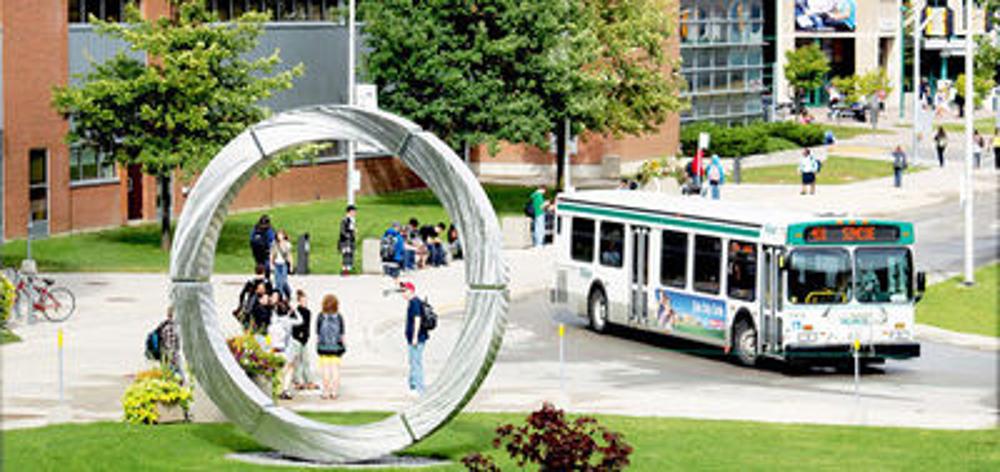Green your meeting
Green meeting checklist
A green meeting considers location, materials, food services, energy conservation and waste to reduce environmental impact. This green meeting checklist provides suggestions to minimize negative environmental impacts associated with hosting meetings. It can be applied to on- and off-campus meetings or events.
Location

- Avoid travel and use telephone or video conferencing technology when possible.
- Choose a central location to minimize driving.
- Choose a location accessible by public transit, like the university. Provide directions and encourage carpooling, biking, or walking.
- Select a Leadership in Energy and Environmental Design (LEED)-certified or energy-efficient building/venue.
Materials
- Collect and reuse name tag holders, and offer a prize to those who return them.
- Email presentations and agendas instead of printing.
- If decorations are necessary, choose reusable options like tablecloths or potted plants.
- If handouts are required, print double-sided on sustainable paper.
- Opt for reusable whiteboards with non-toxic markers instead of flip charts.
- Reuse signage.
- Request attendees bring laptops to take notes.
- Send web-based invitations and email follow-ups.
- Use electronic advertising and promotion.
- When giving gifts, choose sustainable, durable, and locally-made items.
Food services
- Donate leftover food.
- Offer beverages, condiments, and food in bulk to reduce packaging.
- Offer vegetarian meal options.
- Provide compostable or recyclable plates and utensils if disposables are necessary.
- Provide reusable dishware, or ask participants to bring their own mugs.
- Provide university-branded reusable water bottles instead of plastic.
- Reduce plastic use with reusable items.
- Select a caterer with sustainable practices and request eco-friendly meals.
- Serve finger foods that require napkins instead of plates.
- Use green cleaning products.
- Use napkins made from recycled content.
- Use reusable spoons at coffee stations.
Energy conservation
- Remind attendees not to idle.
- Turn off electronic equipment and power bars when not in use.
- Turn off lights when the room is not in use.
Waste
- Arrange to compost food waste if possible.
- Ensure recycling bins are easily accessible and clearly labelled.